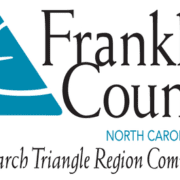TownTalk: Louisburg College Oral History Project Tells Students’ Stories
Louisburg College alumni have an opportunity to record their favorite memories of their days on campus as part of an oral history project underway now.
So far, the college has received close to 600 entries, and Alitha Palich tells alums there’s still time to send in submissions.
Palich is vice president of institutional advancement at Louisburg College and works with donors and alums. She and her team are coordinating the project with a company that specializes in oral history projects.
She told Bill Harris Thursday on Town Talk that they kicked off the project in September and hope to have the final publication available in September 2022.
The two-year college enjoys a long history in the area, dating back to 1787. The majority of students come from Franklin and nearby counties in North Carolina and Virginia.
“My favorite thing to do is hear their stories,” Palich said. She said she listens to alumni reminisce about their time on campus and recall lasting friendships made while students there.
“We’re a small college – that’s part of our charm.” Small college equals small staff, but it also means that students get the chance for more individualized attention from faculty and instructors.
Although the alumni stories span decades, Palich said common themes of special coaches or teachers have emerged in the stories submitted thus far.
And Fried Chicken Thursday.
Palich said she didn’t truly understand just how long the tradition of “Fried Chicken Thursday” had been around until she heard alum after alum recall fondly the weekly cafeteria treat.
“It’s one of the things they mention quite often,” she said. “Most people have a story about that – it’s funny to me that (it) popped up so many times, but it was quite the tradition on campus.”
The plan is to collect stories for a few more months and then begin the process of transcription. Alums may submit photos as well, Palich said. The book that will be created will probably be pretty hefty, and she hopes to get 700 submissions or more. The book will be available for purchase to alumni only; there is no obligation to purchase a book for those alumni who do submit stories. There will be a digital format available as well, she said.
One of the oldest alums to submit his story is a gentleman in his 90s who would have attended Louisburg College in the late 1940’s, she said.
Palich noted that the oral history project is a way for the school to collect stories and share them with others. “We want what their best memories are, their funniest stories…what changed their life,” she said.
In addition to preserving the school’s history through stories for others to read and enjoy now and in the future, Palich said the project also helps to bring up some school pride and strengthen the bond between different years and classes.
Call Palich at 919.496.2521 to learn how to submit stories for the project.







